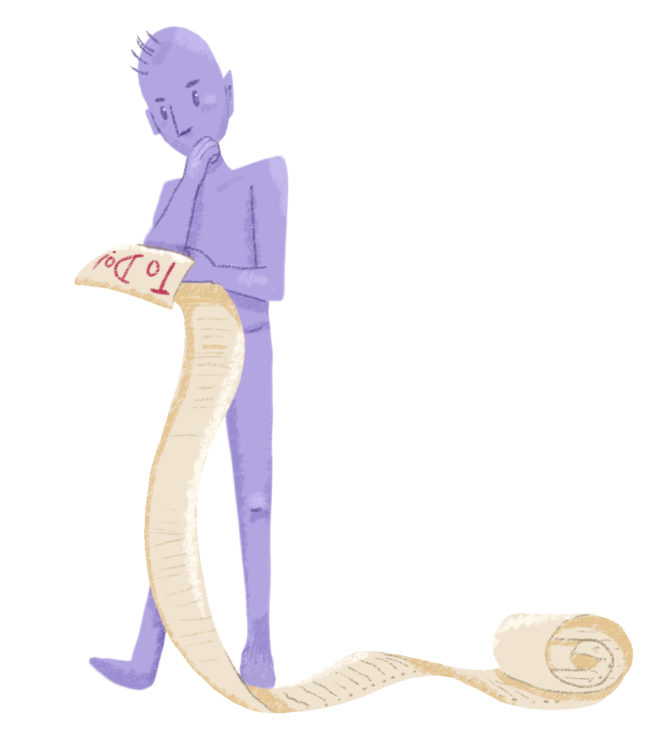Toxic productivity in the time of COVID-19

It can be scary to suddenly realize that all of the projects on the docket, all of the things that used to fill the to-do list, have all at once slipped out of reach. For those of us for whom productivity is a lifestyle, it may be difficult to process that working from sunrise to sunset is no longer as viable as it once was. In this environment of physical distance and weeks on end indoors, can people really maintain the status quo of continuous productivity?
There are many reasons that people might feel they need to stay as productive as possible during this time. Many are valid, such as working from home or finishing necessary school assignments. But some of us, those who don’t find themselves employed or who have finished the last of their homework might still feel the urge to produce as much as possible. Why is that?
Well, the cycle of productivity — getting out as much work in as little time as possible — can stop many from thinking too hard about the world or their problems. When one is producing, the small things that pile up and cause them stress can easily sit on the back burner. Never mind that the ever-productive person is too busy to get back to them. Productivity, then, can be a method of avoidance. To avoid thinking about stress, depression, anxiety, and focus on what is produced can often provide a sense of self-worth and motivation to continue into the next day.
But in a world where we have been forced to stop and shelter in place, is productivity the answer to unhappiness? Not really. These days — and perhaps this has always been true — there are more important things than how many words you can learn or how much you can add to your novel-in-progress. What’s important now is being in the moment and taking care of ourselves.
Sure, keeping up with writing projects, cleaning the house, learning a new language, cleaning the house, organizing your trading card collection, and cleaning the house for a third time are all good activities for maintaining a sense of normalcy. They’re distracting, and can allow people to avoid the fear and crushing boredom that can easily overwhelm. But, despite how attractive these tasks may seem, there arrives a point when the productivity mindset is toxic. It can actually halt personal development and distract us from what may need to change. But more than that, it can tie people to behaviours that cause depression and anxiety by preventing them from getting proper rest and the relaxation needed to recuperate from constant effort. Mental and physical health disorders may slowly grow like mold unattended in the back of the mind. Before you know it, these things have taken over and getting rid of them feels impossible. But it doesn’t have to be that way.
During this time, when the world is so deeply entrenched in a pandemic, we have the opportunity — and the seemingly unlimited time — to shed toxic behaviours. This is a chance to slow down. An opportunity to look inside ourselves and work on things that have been ignored. It’s okay not to be okay. It’s alright, now more than ever, to allow yourself to practice self care and personal development. We are all supposed to be self-isolating, and so what better time is there than now to tune into our own energy and thoughts and find ways to adjust our toxic behaviors? Perhaps we, as a society, have a chance to become more relaxed, easygoing, well-adjusted individuals. Yes, it’s going to take more than a few weeks of self care to solve complex or severe problems. But using productivity as a crutch won’t help.
Now that free time is abundant, it’s time to stop and smell the roses. This is the moment to appreciate loved ones, find silver linings, rest, take care of our health, and take care of each other. These are the things that matter. In six months, who knows if that new language or your clean apartment will even matter. What matters is this moment. So consider using this time that you have to develop a better relationship with yourself. After all, we don’t know how much time we have left.






